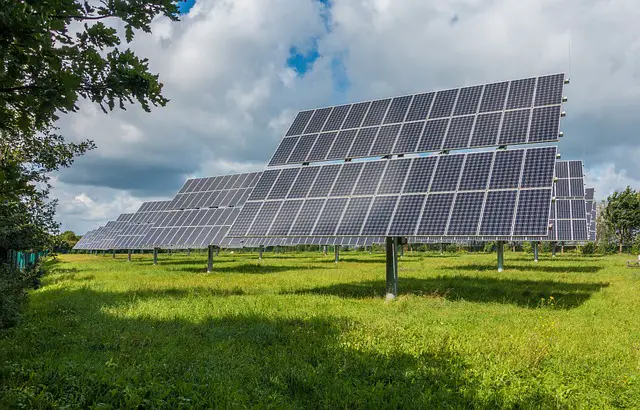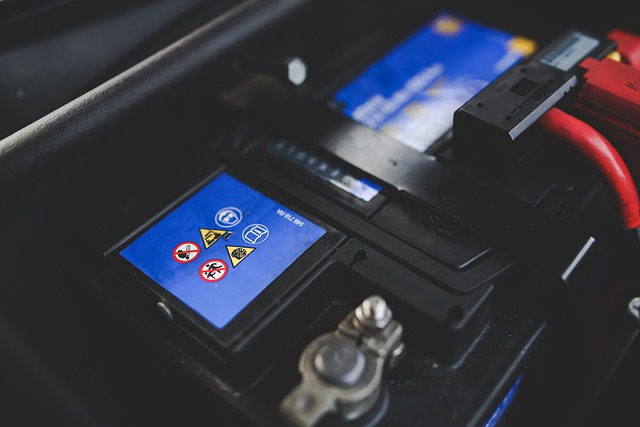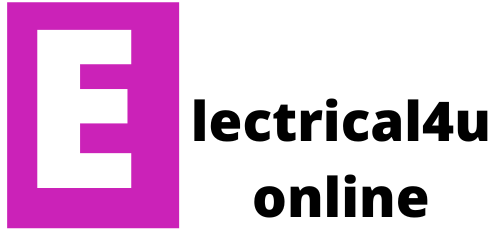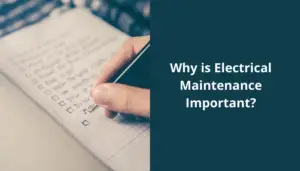Table of Contents
Can I use a solar panel without the Battery?
Yes, you can use a solar panel without a battery, but the setup will work differently compared to a solar power system with energy storage.
In a typical solar power system with a battery, excess energy generated by the solar panels during the day is stored in the battery for later use, such as during the night or on cloudy days. Without a battery, the solar panel system will only provide power when the sun is shining.
Here are a few key points to consider when using solar panels without a battery:
- Daytime Power Generation: The solar panels will generate electricity during daylight hours. Any power generated that exceeds the immediate demand in the house will essentially be unused if there is no battery to store it.
- Grid-Tied Systems: In some cases, solar panel systems are connected to the electrical grid. When the panels produce more power than the house needs, the excess electricity can be fed back into the grid. This is known as a grid-tied system, and it can sometimes result in credits or compensation from the utility company.
- No Power During Night: Without a battery, your solar panels won’t generate power at night. During nighttime hours or when the panels are not receiving sunlight, you’ll rely on electricity from the grid or an alternative power source.
- Sizing Considerations: When designing a solar panel system without a battery, it’s important to consider the size of the system based on your daytime energy needs. You want to ensure that the panels can meet your electricity demand during daylight hours.
While a solar panel system without a battery can be simpler and more cost-effective upfront, it may not provide continuous power during periods of low or no sunlight.
If you’re looking for a solution that allows for energy independence and backup power during outages, a solar panel system with a battery or other energy storage option may be more suitable.
How Can I run my AC on solar without a battery?

Running an air conditioner (AC) directly on solar power without a battery involves designing a solar power system that can meet the AC’s power requirements during daylight hours when the sun is shining. Here are the general steps to achieve this:
- Determine AC Power Requirements:
- Find out the power consumption of your AC unit in watts. This information is typically provided on the AC unit’s nameplate or in the user manual.
- Calculate Solar Panel Capacity:
- Calculate the number and capacity of solar panels needed to generate sufficient power for your AC during daylight hours. Consider factors such as sunlight hours, panel efficiency, and local weather conditions.
- The formula for calculating solar panel capacity is: Solar Panel Capacity (kW)=AC Power Consumption (kW) Daily Sunlight HoursSolar Panel Capacity (kW)=Daily Sunlight HoursAC Power Consumption (kW)
- Use an Inverter:
- Install a solar inverter that can convert the direct current (DC) generated by the solar panels into alternating current (AC) suitable for powering your AC unit.
- The inverter must be appropriately sized to handle the peak power (starting surge) of the AC unit.
- Grid-Tied or Hybrid System:
- Consider whether you want a grid-tied or hybrid solar system. In a grid-tied system, excess power can be fed back into the grid, potentially earning you credits or compensation from the utility company. In a hybrid system, you might use the grid as a backup during periods of low sunlight.
- Optimize Energy Consumption:
- Use energy-efficient practices to optimize your overall energy consumption. This includes using the AC during peak sunlight hours and minimizing other electrical loads when the AC is in use.
- Professional Installation:
- It’s recommended to consult with a solar energy professional for system design, sizing, and installation. They can assess your specific needs, consider local conditions, and ensure that the solar panel system is safely integrated with your AC unit.
It’s important to note that running an AC directly on solar power without a battery means the AC will only operate when the sun is shining.
If the sunlight is insufficient or during nighttime, you would need an alternative power source, such as electricity from the grid.
Also, keep in mind that the starting surge of an AC unit (when it turns on) is higher than its continuous running power, so the solar inverter must be able to handle this surge without issues.
Can I use my car battery for a solar panel?

Yes, a car battery can be used for solar panels but there will be significant changes in the output and efficiency.
A car battery is type of a starter battery that is designed to produce short but powerful amounts of current for starting the car engine.
The flow of the electricity is quite significant as compared to the solar battery. As far as lengthier and stabilized supply of energy is concerned, there is no comparison between solar and car battery, solar battery is far better than the car battery.
Solar batteries are designed to store energy for a longer period. These batteries are also different from car batteries as they can provide electricity for longer hours.
Solar batteries can withstand different charging and discharging cycles without affecting the lifespan of the battery.
The durability of the solar batteries is quite good. Car batteries are cheaper but it is the wrong choice for solar panels.
How do you know if a solar panel is charging the battery?
To determine if a solar panel is charging a battery, you can use a few methods and check various indicators. Here are some common ways to verify whether a solar panel is effectively charging a battery:
- Use a Charge Controller:
- A charge controller is a crucial component in a solar power system. It regulates the voltage and current coming from the solar panels to prevent overcharging the battery. Most charge controllers have LED indicators or digital displays that show the charging status. Check the charge controller’s display or indicator lights to see if it indicates that the battery is charging.
- Measure Voltage at the Battery Terminals:
- Use a multimeter to measure the voltage at the battery terminals. When the solar panel is charging the battery, you should see an increase in voltage. The actual voltage values will depend on the specifications of your battery and the charging stage.
- Monitor Battery Voltage Over Time:
- Take periodic voltage readings at the battery terminals throughout the day. A rising voltage indicates that the battery is receiving a charge. Keep in mind that the voltage may fluctuate based on sunlight conditions and the charging stage.
- Check Solar Panel Output:
- Measure the voltage and current output from the solar panels. This information can be obtained directly from the solar panel specifications or by using a multimeter. If the solar panels are producing power, it’s an indication that they are operational.
- Use a Solar Power Monitoring System:
- Some solar power systems come with monitoring systems that provide real-time data on energy production and battery status. These systems may have online platforms or mobile apps that allow you to check the performance remotely.
- Inspect Battery Charge State:
- If your battery has a built-in charge status indicator or if you have a separate battery monitor, check its readings. Many modern batteries come with indicators that show whether the battery is charging, fully charged, or discharging.
- Observe System Behavior:
- Pay attention to any audible or visual signals from the solar power system. Some systems may have alarms or indicators that alert you to charging or system issues.
It’s important to note that charging may be intermittent, especially on cloudy days or when the solar panels are not receiving direct sunlight.
Additionally, if your solar panel system is grid-tied, excess power generated during the day might be fed back into the grid rather than charging the battery directly.
Regular monitoring and understanding the specifications of your solar power system components are key to ensuring proper operation and maximizing the efficiency of the charging process.
How long do solar batteries last?
The lifespan of solar batteries can vary depending on several factors, including the type of battery, usage patterns, maintenance, and environmental conditions. Here’s a general overview of the typical lifespans for common types of solar batteries:
- Lead-Acid Batteries:
- Flooded Lead-Acid (FLA) Batteries: These are traditional lead-acid batteries with liquid electrolyte. They generally last around 5 to 15 years, with regular maintenance.
- Sealed Lead-Acid (SLA) Batteries: These are maintenance-free lead-acid batteries, such as gel or absorbed glass mat (AGM) batteries. Their lifespan is typically in the range of 5 to 15 years.
- Lithium-Ion Batteries:
- LFP (Lithium Iron Phosphate) Batteries: Lithium-ion batteries, particularly those using LFP chemistry, are becoming more popular for solar applications. They have a longer lifespan compared to lead-acid batteries and can last 10 to 20 years or more, depending on the specific battery and usage conditions.
It’s important to note that the lifespan of a solar battery is often defined by its “cycle life,” which refers to the number of charge-discharge cycles it can undergo before its capacity significantly degrades. A cycle is one complete charge followed by one complete discharge.
Several factors can influence the lifespan of solar batteries:
- Depth of Discharge (DoD): The deeper a battery is regularly discharged, the fewer cycles it can endure. Shallower discharges can extend battery life.
- Temperature: Extreme temperatures, whether hot or cold, can affect battery performance and longevity. It’s advisable to keep batteries within their recommended temperature range.
- Maintenance: Some batteries require regular maintenance, such as checking water levels in flooded lead-acid batteries. Proper maintenance can extend the lifespan of certain battery types.
- Charging and Discharging Rates: The rate at which a battery is charged or discharged can impact its lifespan. Following manufacturer recommendations for charge and discharge rates is important.
- Manufacturer Quality: The quality of the battery and its manufacturer can influence how well it performs and how long it lasts. Choosing reputable brands and high-quality batteries is crucial.
As technology advances, and with ongoing research and development in energy storage, new battery technologies may emerge with even longer lifespans.
When considering a solar battery system, it’s essential to carefully review the specifications provided by the manufacturer and consider the specific conditions of your installation to estimate the expected lifespan. Additionally, consulting with a solar professional can help you choose the most suitable battery for your needs.
Don’t Leave Empty-Handed!
Install my Free Android App on Google Play:
Electrical Cables Most Common Tables “Cables Tables”
And, my Electrical Calculations App “Fast Electrical Calculator”
Discover more great content by subscribing to My channel
Looking to stay ahead of the game in the world of electrical engineering? Subscribe to my YouTube channel and gain access to exclusive content you won’t find anywhere else!
The staff I recommend
(Amazon Affiliate Links to products I believe are high quality):
- Economy 120 Volt/60Hz AC Power Source – Step-Down Voltage & Frequency Converters 1800W
- UNI-T Digital Multimeter Tester UT139C
- 50-Amp Extension Cord for RV “100ft”
- Voltage Stabilizer 110/220v
- Hair Dryer “best selling“
- TOSHIBA EM131A5C-BS Countertop Microwave Ovens
Disclaimer: This contains affiliate links to Amazon products. I may earn a commission for purchases made through these links.


